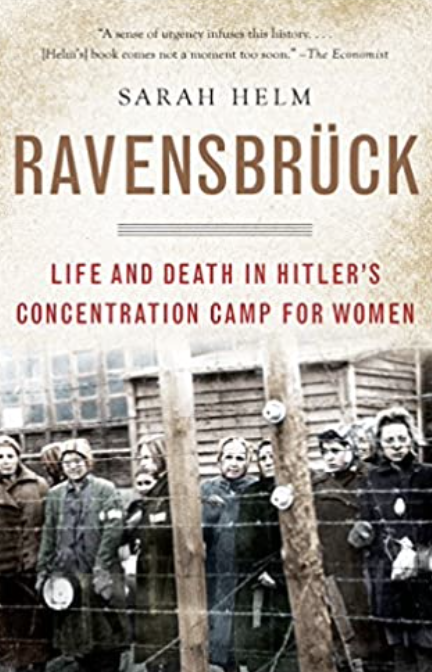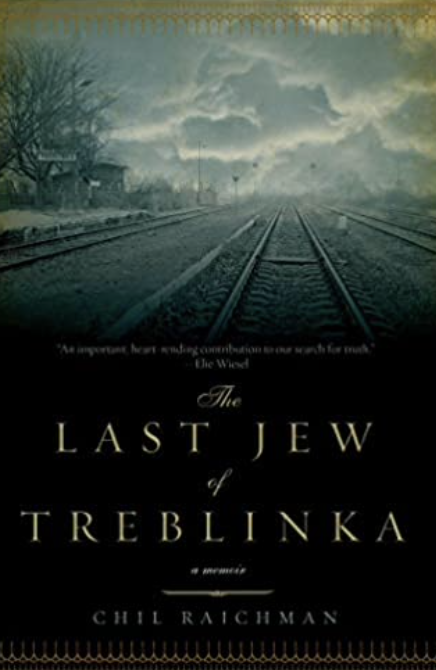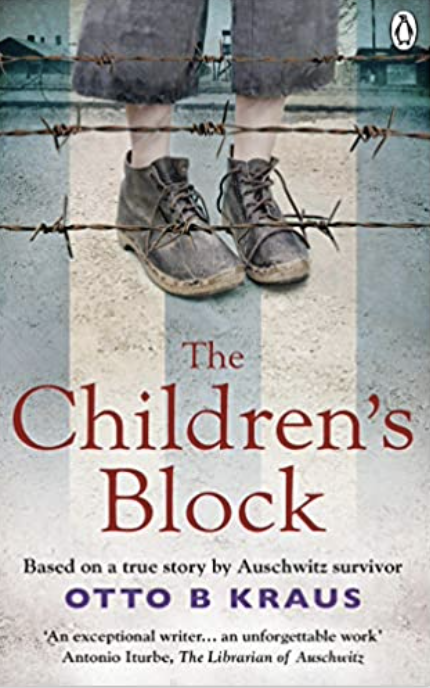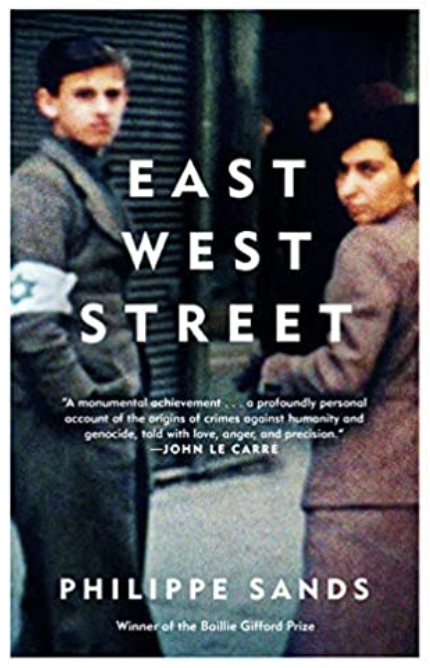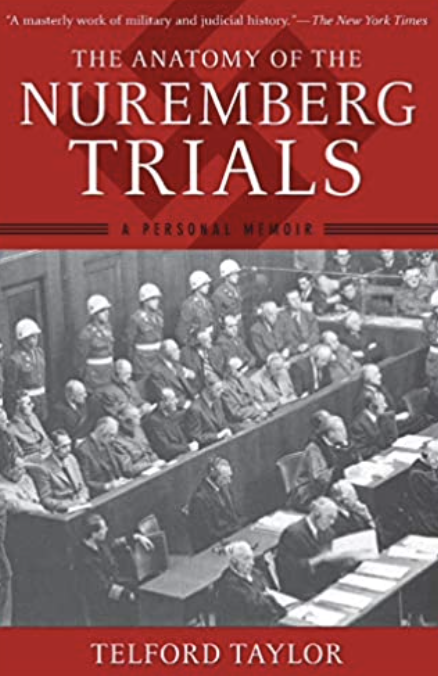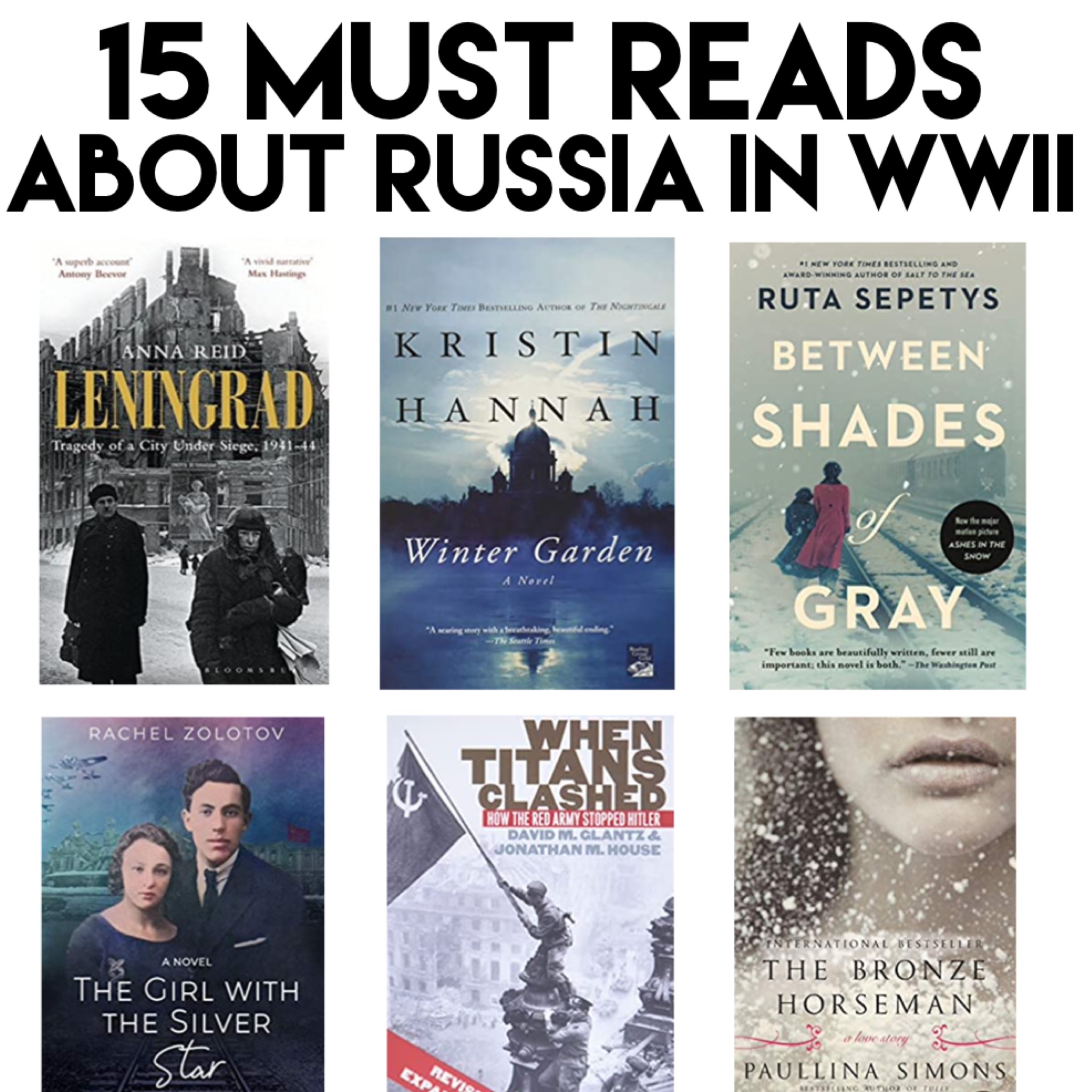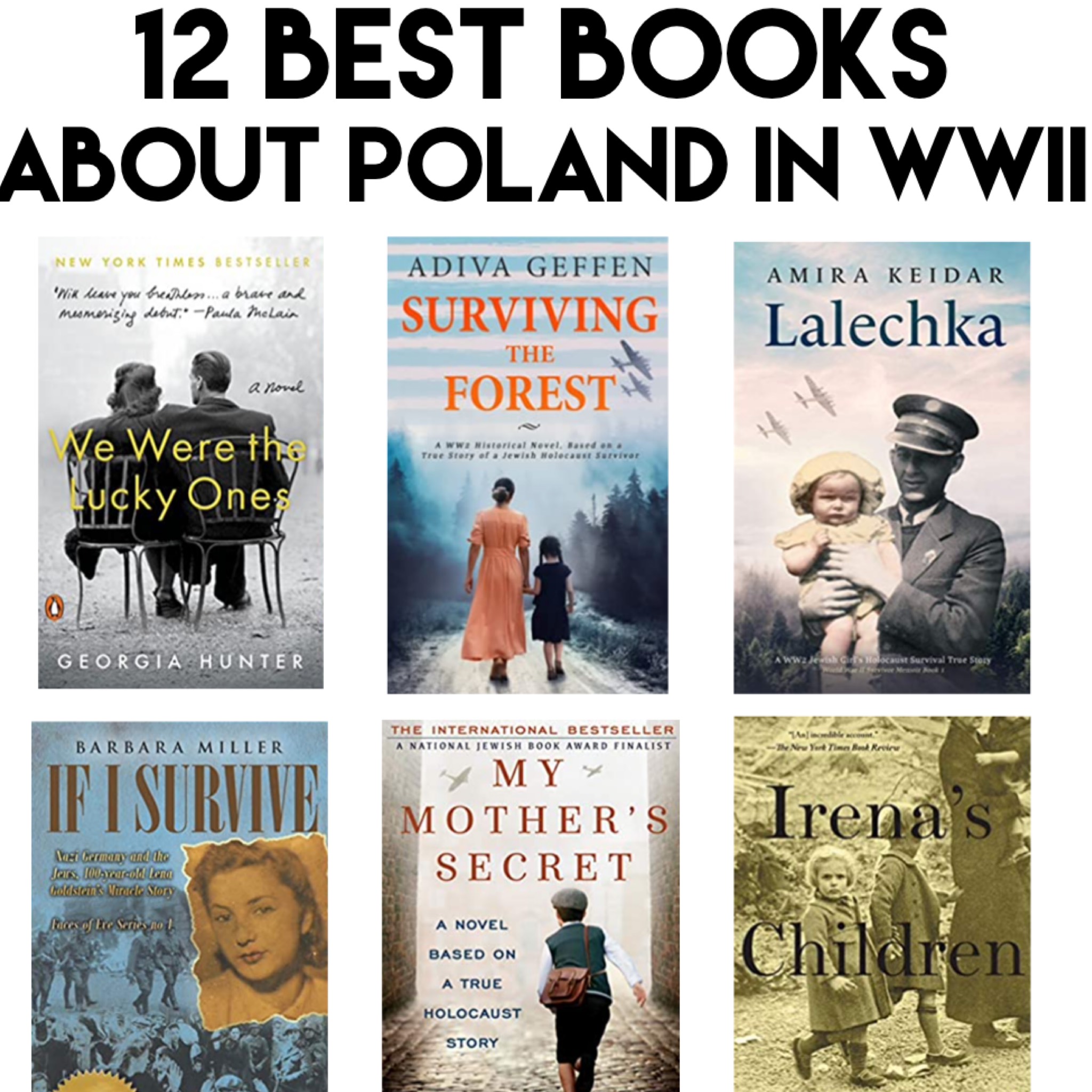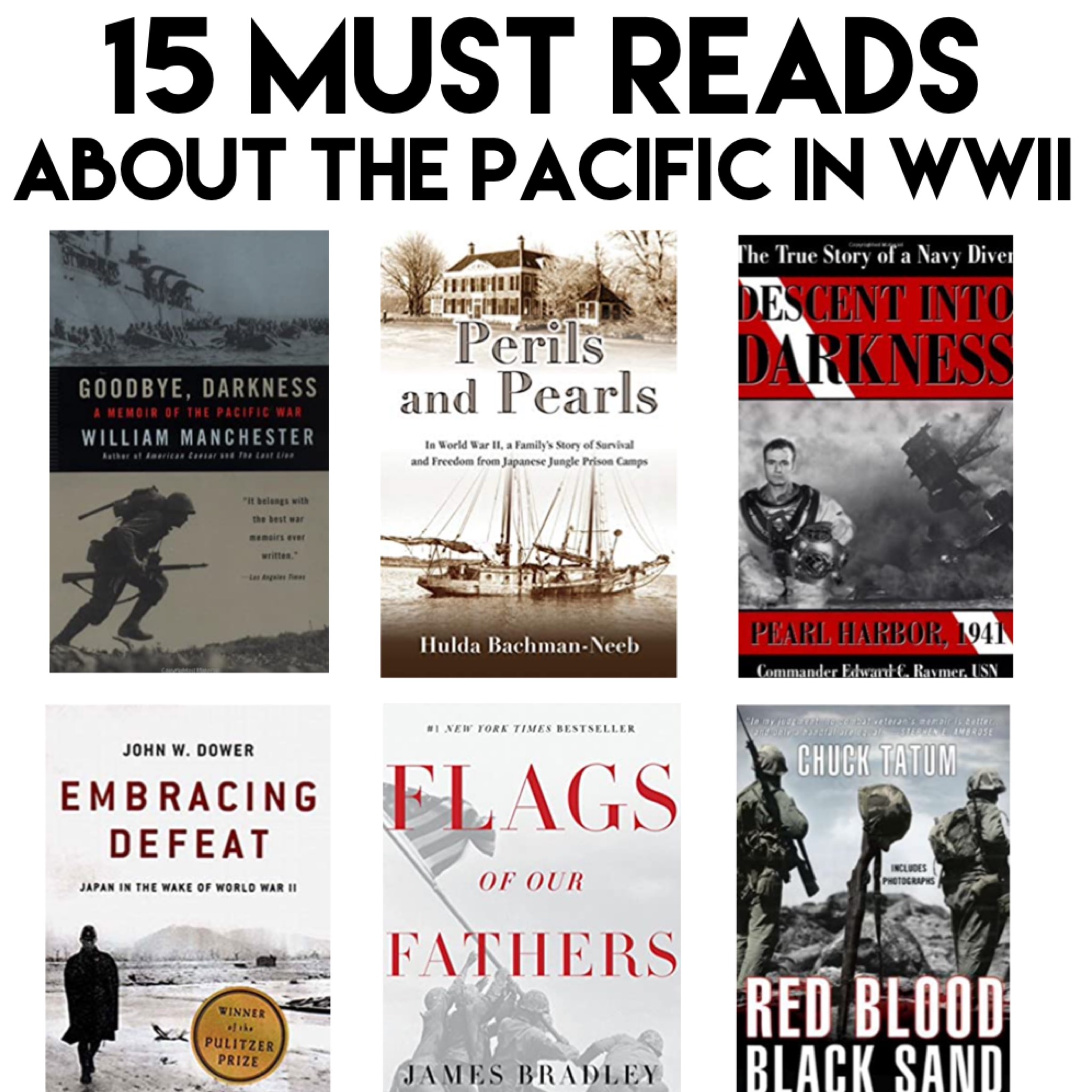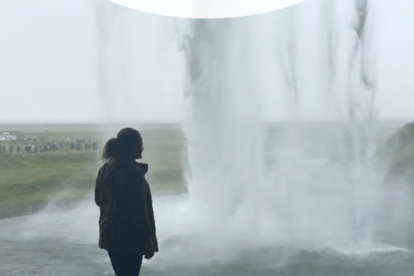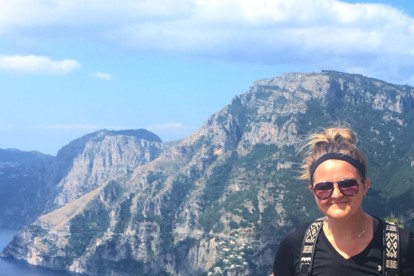It’s so important that we understand the horrors that took place during the Holocaust, and even more important that we read the stories and experiences of survivors that endured it in their own words. This list of nonfiction books about the Holocaust cover several different concentration camps, including Auschwitz, Ravensbruck, Treblinka and more, and includes a few books about the resulting Nuremberg Trials that were held for the men and women who carried out these atrocities and crimes against humanity. This history, while hard to read at times, is necessary to prevent hate from ever being allowed to terrorize an entire group of people ever again.
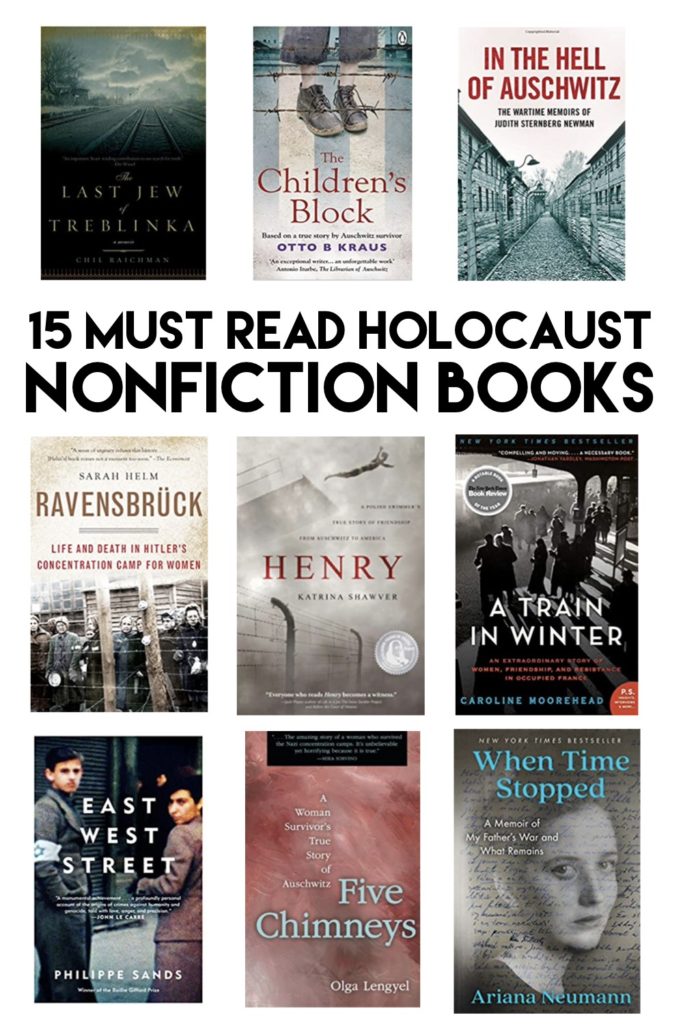
Related: 12 Best Books About Poland During WWII & Best Historical Fiction Books to Read About the Holocaust
House of Glass by Hadley Freemen
After her grandmother’s death, Hadley Freemen found a shoebox full of items she’d never seen before. The discovery, and knowing her Grandmother grew up in France around the time of Hitler’s rise to power, sent Hadley on a decade-long quest to uncover the significance of these keepsakes, taking her from Paris to a secret room in a farmhouse in Auvergne to Long Island to Auschwitz. Freeman pieces together the puzzle of her family’s past, discovering more about the lives of her grandmother and her three brothers, Jacques, Henri, and Alex. Their stories sometimes typical, sometimes astonishing—reveal the broad range of experiences of Eastern European Jews during Holocaust.
When Time Stopped: A Memoir of My Father’s War and What Remains by Ariana Neumann
This is a true, unputdownable detective story and incredible family memoir, spanning nearly ninety years and crossing oceans. Neumann brings each relative to vivid life. In uncovering her father’s story after all these years, she discovers nuance and depth to her own history and liberates poignant and thought-provoking truths about the threads of humanity that connect us all
Auschwitz #34207: The Joe Rubinstein Story by Nancy Sprowell Geise
In 1942, barefoot 21 year old Joe Rubinstein was forced onto a cattle car and taken to Auschwitz. Mr. Rubinstein has never before told his story, and now in his nineties, he takes us through this remarkable survival story and how he was able to keep hope and faith in the darkest of places. This narrative shows that the Third Reich took almost everything from him, but they could not take his joy. It’s truly a wonderful book of courage, endurance and love.
Henry: A Polish Swimmer’s True Story of Friendship from Auschwitz to America by Katrina Shawver
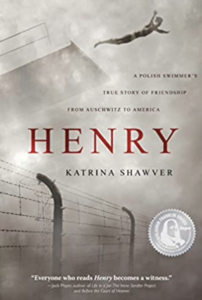
Henry’s story of the years he spent in Auschwitz and other concentration camps is heartbreaking at times, yet inspiring at others. Through all that he went through, he never lost his sense of humor, and his incredible personality and strength shines on every page. His story tells the one of the death camp prisoner who was not Jewish, but still wasn’t spared by the cruelty of the Nazi regime, who deemed anyone not German inferior. This list was rather long, and included scholars, philosophers, Christians, and Polish, to name only a few. Henry’s crime of being Polish got him arrested and sent to Auschwitz, and then was forced on a death march to Dachau. This biography about one man’s journey through seemingly unsurvivable odds is honest, emotional and has won numerous awards- and was worthy of them all.
Ravensbruck: Life and Death in Hitler’s Concentration Camp for Women by Sarah Helm
Heinrich Himmler, the prime architect of the Holocaust, designed a special concentration camp for women just north of Berlin. Only a small number of the prisoners were Jewish. Ravensbrück was primarily a place for the Nazis to hold women, and others deemed inferior: Jehovah’s Witnesses, Resistance fighters, lesbians, prostitutes, and aristocrats—even the sister of New York’s Mayor LaGuardia. Over six years the prisoners endured forced labor, torture, starvation, medical experiments and execution. In the final months of the war, Ravensbrück became an extermination camp. This chilling narrative uses first hand accounts to finally tell the full story of what happened in this horrible place.
The Last Jew of Treblinka by Chil Rajchman
The Last Jew of Treblinka is a memoir written by Chil Rajchman in 1945, immediately after the war. To this day, not much is known about Treblinka except for what the survivors have disclosed about their time in this death camp, and there were not many survivors at all. When the Germans knew the war was about to be lost, they destroyed almost all evidence that anything existed in that Polish forest, burning the buildings, paperwork and demolishing the gas chambers. This book, while chilling, is one of the best descriptions of the Nazi’s “Final Solution” program. Chil’s account of what happened to him and his sister is heartbreaking, but so important to read.
Auschwitz: A Doctor’s Eyewitness Account by Dr. Miklos Nyiszli
Dr. Miklos Nyiszli, like almost the entire population of the Jewish people in Hungry, was sent to Auschwitz by the Nazis. Because of his profession, he was pulled aside and spared from the gas chambers. However, he endured an even grimmer reality when he realized he was to help Dr. Josef Mengele, the infamous “Angel of Death”. He was forced to perform “scientific research” and assist Mengele with the gruesome, inhumane activities the Third Reich was carrying out against his fellow Jewish community members. He managed to come out alive, and wrote his story soon after the war, and is one of the only survivors to have seen the terrifying medical side of Auschwitz firsthand.
Five Chimneys: A Woman Survivor’s True Story of Auschwitz by Olga Lengyel
Five Chimneys is a Holocaust memoir written by Olga Lengyel, a Hungarian woman deported to Auschwitz in 1944 after the Germans occupied her country. More than Anne Frank’s Diary, this is the book that every human should be required to read. It gives a vivid depiction of day-to-day life in Auschwitz as Olga and the other prisoners were subjected to the most inhumane treatment and try to do what they can to survive. Olga’s nightmare is still felt through these pages, all these years later, as she brings us back to her time spent in the concentration camp, her guilt felt for being the lone survivor after her parents and children were immediately sent to the gas chambers upon arrival. Really a necessary read both to pay respect to Olga’s life and human experience, and to ensure the horrors of that time can never, ever happen again.
A Train in Winter by Caroline Moorehead
This is the little-known story of a group of women in the French resistance and their riveting, heart-wrenching deportation to Auschwitz from German occupied France. In January 1943, the story of these women start as they are deported to the death camp in Poland. It’s the first time their experience has been told in full, and is an unforgettable and compelling depiction of their friendship, courage and survival in the most horrific place on earth.
The Children’s Block by Otto B Kraus
This is an account of a children’s section Birkenau concentration camp, written by survivor Otto Kraus. In spite of the inhumane treatment, squalor conditions and constant threat of violence and death, he still finds a way to provide the 500 children of this block with some sort of normalcy. He takes it upon himself to teach them, even though such an act was completely forbidden by the Nazi guards. Whenever possible, I think reading the words of someone who was there is the best way to learn, and this book is not only a wonderful narrative, but a great way to understand a different aspect of what life was like the children imprisoned in Auschwitz.
East West Street by Philippe Sands
This incredible book is part gripping family memoir, part historical examination of how society copes with mass murder on such a massive scale. East West Street looks at how the terms “genocide” and “crimes against humanity” came to be in the wake of the the destruction of an entire population and what that meant for the legal system of the 1940’s. It almost reads as a crime fiction detective story as the author pieces together parts of his grandfather’s past while also providing historical context about how the Nuremberg Trials came to be.
The Anatomy of the Nuremberg Trials: A Personal Memoir by Telford Taylor
In 1945, the Allied nations agreed on a judicial process that would be used to bring Nazis who were charged with the worst war crimes in history to justice. It was decided the trials would be held in Nuremberg, which was the ceremonial birthplace of the Nazi Party. British, American, French, and Soviet leaders contributed judges and prosecutors to the series of trials that would prosecute some of the most prominent villains that enabled and executed the horrors of the Holocaust. This book is written by one of American prosecutors, detailing his experience of trying Nazi war criminals and is a must-read for anyone wanting to learn more about how the world, and the individuals tasked with the job, coped with the aftermath of WWII.
I Want You to Know We’re Still Here: A Post-Holocaust Memoir by Esther Safran Foer
Ester grew up as the only child of two survivors, she knew that, but her parent’s past was too awful for them to speak of. So when Esther’s mother mentions an astonishing revelation—that her father had a previous wife and daughter, both killed in the Holocaust—Esther resolves to find out who they were, and how her father survived. Armed with only a black-and-white photo and a hand-drawn map, she travels to Ukraine, determined to find where her father hid during the war. What she finds reshapes her identity and gives her the opportunity to finally mourn
In the Hell of Auschwitz: The Wartime Memoirs of Judith Sternberg Newman by Judith Sternberg Newman
In 1942, a young woman was forced into Auschwitz with 11 of her family members, including her mother, siblings, fiancé, aunt and uncle. She would be the only one to leave alive. This memoir, which Judith began writing in 1947 is a heartbreaking yet fascinating look at the events that Judith endured, and the moments that could have taken her life, yet by some stroke of luck, she was spared. Whenever possible, I think it’s important to read the words of survivors of their lived experiences, and this book is one of those books that gives all of us a deeper understanding of the hell that was one of the worst periods of modern civilization.
Nuremberg Diary by G.M. Gilbert
G. M. Gilbert served as the prison psychologist which gave him firsthand access to the worst of the Nazi war criminals. He worked to build their trust which encouraged them to tell him their motivations behind creating Auschwitz, Dachau and Buchenwald. Their shocking and chilling interactions also gave Gilbert access to their opinions on the trial, Hitler, and their desperate attempts to distance themselves publicly from the crimes they had committed under the Third Reich. This is an intimate look at some of the worst crimes against humanity, from the psychologist tasked with having to work with the offenders.
This book is also featured on our list of Best Nonfiction Books About the European Theater in WWII
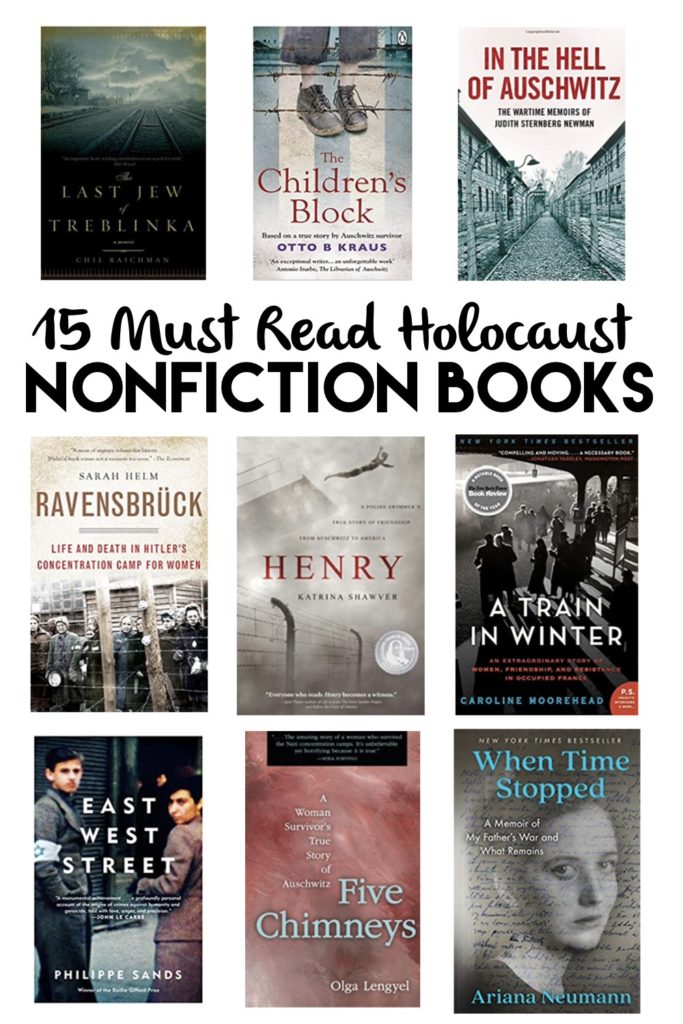
This 15 Must Read Nonfiction Books About the Holocaust post may contain some links that are affiliate links, though products are ones I use personally and recommend. When you purchase anything using my links, it costs you absolutely nothing extra, but it does give carryonbailey.com a little financial support which helps to keep this blog running. Thank you for your continued support, both with your dollars and your interest.



